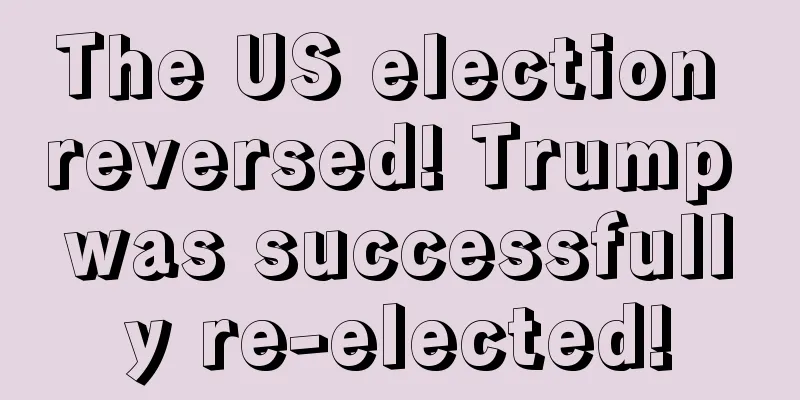Cross-border industry is good! China-US tariffs usher in a turnaround

|
Recently, China and the United States held the third round of high-level consultations in Zurich. The United States negotiated with us with an unprecedented attitude, striving for further win-win cooperation and gradually canceling the punitive tariffs set by the Trump administration! This is the third face-to-face meeting between Chinese and US high-level officials, following the Alaska dialogue in March and the Tianjin talks in July. We have also reported on the previous two times. The situation was not optimistic. The negotiation atmosphere between the two sides was tense and unyielding. However, this time the negotiations have undergone a great change. The US side has softened its attitude and has conducted effective consultations and exchanges of views with us. Foreign media also said that this is the "most in-depth dialogue" between US and Chinese officials since Biden took office. In order to show the sincerity of this dialogue, U.S. Trade Representative Katherine Tai announced the restart of the tariff exclusion procedure before the negotiations and published the "U.S. Product Index List of 549 Previously Imposed Tariffs Expanded Exclusions". She has solicited opinions from the outside world from October 12 to December 1 to discuss the exclusion of products such as industrial parts, thermostats, medical supplies, bicycles and textiles from the punitive tariff list. Judging from the US's actions, this move has a significant goodwill connotation, and it can be seen that the US really wants to achieve results in this trade negotiation. Even the outside world has begun to speculate whether this means that the US has begun to want to end this years-long trade war. The end of the trade war The two sides mainly discussed the following issues in this meeting 1. China-US economic and trade relations are of vital importance. Both sides should work hard to promote trade normalization and strengthen bilateral economic and trade exchanges and cooperation. 2. The two sides exchanged views on the implementation of the China-US economic and trade agreement. China negotiated on the cancellation of additional tariffs and sanctions, and the Biden administration said it would launch a "targeted tariff exemption process" to exempt the Trump administration from the tariffs previously imposed on Chinese goods worth $370 billion per year. 3. The two sides expressed their respective core concerns, such as the Taiwan Strait issue, the Xinjiang issue and the human rights movement in the United States, and agreed to resolve each other's reasonable demands through consultation. It is not easy for such a high-level meeting to reach such a consensus in the current Sino-US relations. The US government's attitude was originally very strong, why did it change so much? In the final analysis, it is for its own sake. Judging from relevant reports from the American media, the United States is currently facing very severe inflationary pressure. The shortage of daily necessities has seriously affected the lives of the American people. Some supermarkets even put product pictures outside the shelves, pretending that the shelves are full, but in fact all products are out of stock. Onlookers who are not aware of the situation might think they are in North Korea. In addition, some American business groups were disappointed that U.S. Trade Representative Katherine Tai did not explicitly mention the cancellation of tariffs on China. Gary Shapiro, president of the Consumer Technology Association, issued a statement that day saying that the Biden administration should end these tariffs that hurt American businesses and consumers. Since the outbreak of the trade dispute, the American people have borne an additional tariff cost of more than $90 billion. According to the Wall Street Journal, more than 30 of the most influential business groups in the United States signed a joint letter calling on the Biden administration to restart trade negotiations with China and cut tariffs on Chinese imports, saying that these tariffs are increasing the burden on the American people and businesses and dragging down US economic growth. On the one hand, the domestic situation is severe and the American people cannot wait. On the other hand, China has a tough attitude and refuses to give in. Under internal and external troubles, it is only a matter of time before the United States relaxes its negotiating attitude. At present, the Zurich meeting is only the first turning point of the entire negotiation, and there will certainly be a lot of negotiations before the tariffs are officially lifted. |
>>: Amazon warehouse bursts ahead of schedule! 200,000 containers piled up at ports
Recommend
What is Volusion? Volusion Review
Volusion is a service platform for merchants to cr...
Cross-border high-quality updates-analyze competitors|advertising optimization|register US account|buy words
Summary and analysis of Amazon competitor listing ...
Big news! Amazon is publicly soliciting masks and other items. If the price is too high, the account will be banned!
It is reported that as of 06:00 Beijing time on Ap...
What is a no logo infringement incident? No logo infringement incident review
A large number of European accounts were blocked, ...
Amazon US FBA policy update! Allowing more products to create shipments and enter the warehouse!
Amazon US FBA now allows more products to create s...
How to Create the Best Amazon Product Titles (One-Minute Analysis)
How to write product titles accurately is not just...
What is Two-Step Verification? Two-Step Verification Review
In order to prevent unauthorized access to seller ...
Amazon updates its policy! What are the hot spots for cross-border sellers?
Recently, Amazon released an announcement in the ...
Here are the 4 most deceptive product selection methods for Amazon. Which ones have you used?
text Here is a comprehensive review of the most d...
Amazon Advertising FAQs: 100 Questions and Answers to Help You Improve Your Advertising Results
My dear friends, have you ever encountered variou...
Amazon product selection dimensions
1. Category Analysis of Product Selection 1. Marke...
Riots escalate, wildfires rage, the United States is out of control again! Last-mile delivery may be threatened again!
Today, Amazon released its third-quarter financial...
Competition in the BNPL market intensifies! PayPal announces cancellation of late payment fees
<span data-shimo-docs="[[20,"获悉,日前PayPal宣布...
Why is your off-site promotion ineffective and not generating any sales?
Have you encountered the problem of poor off-site ...
What is 4PX? 4PX Review
4PX EXPRESS is a professional international expres...









